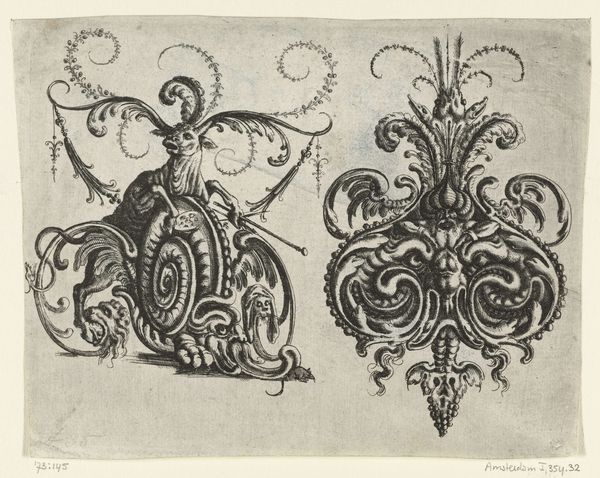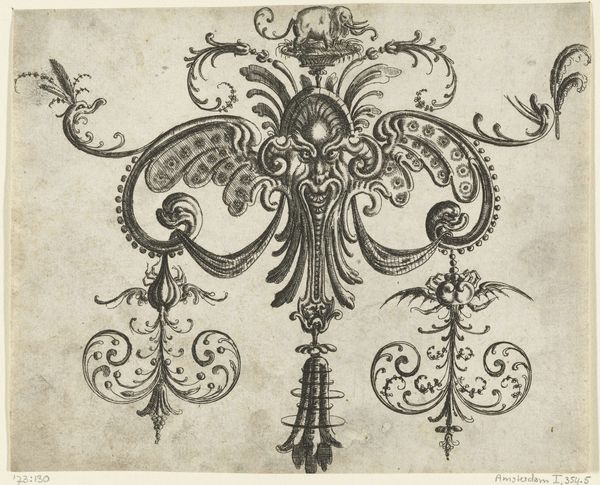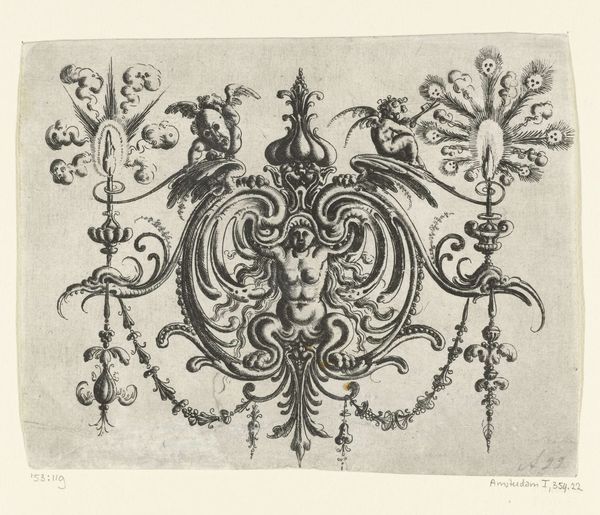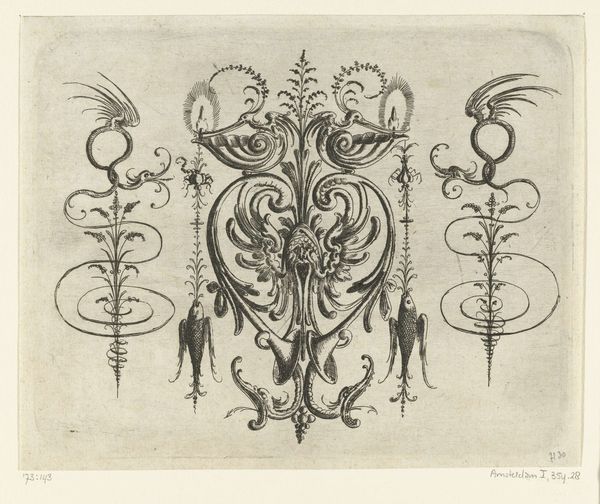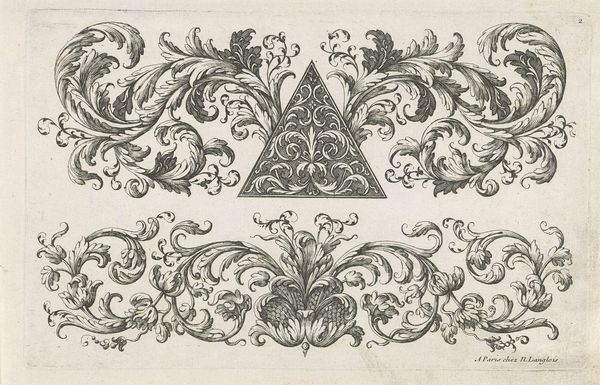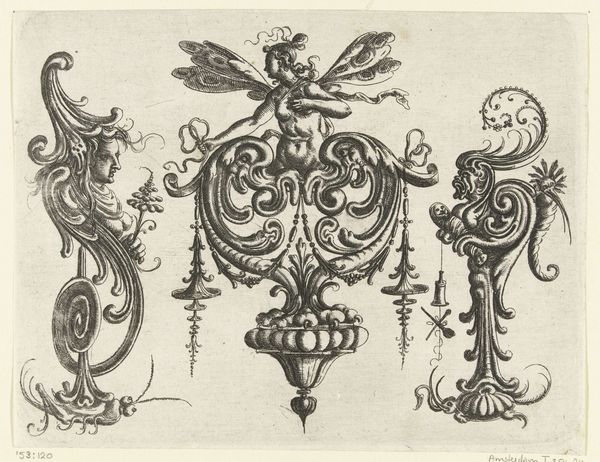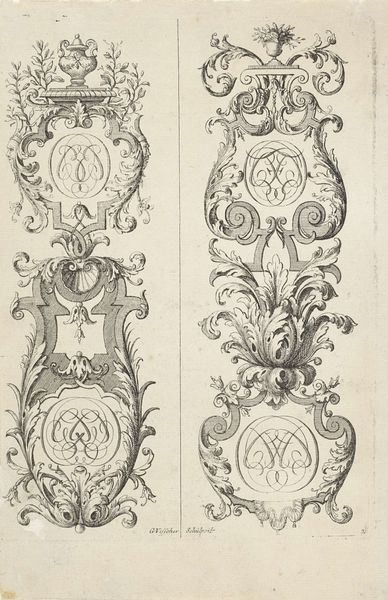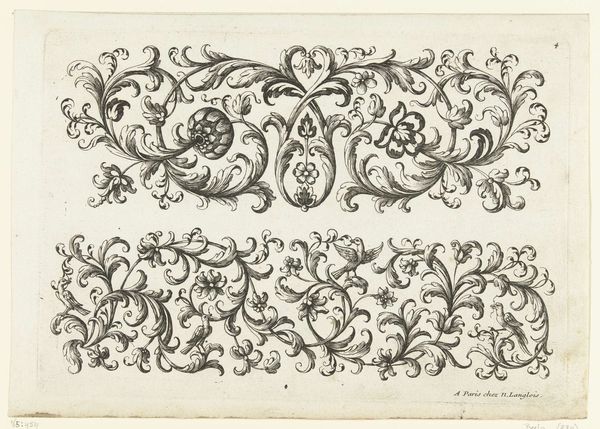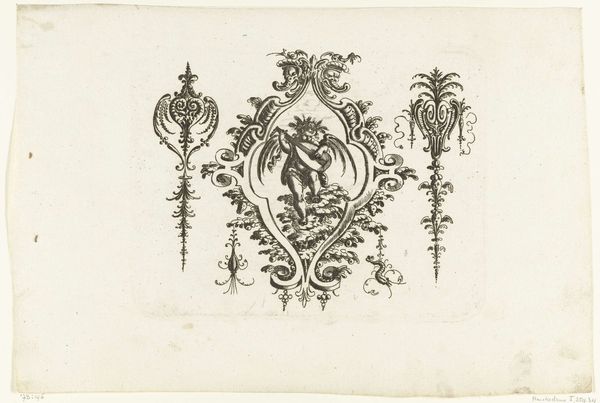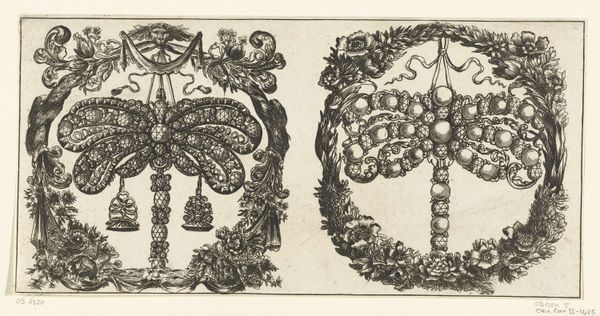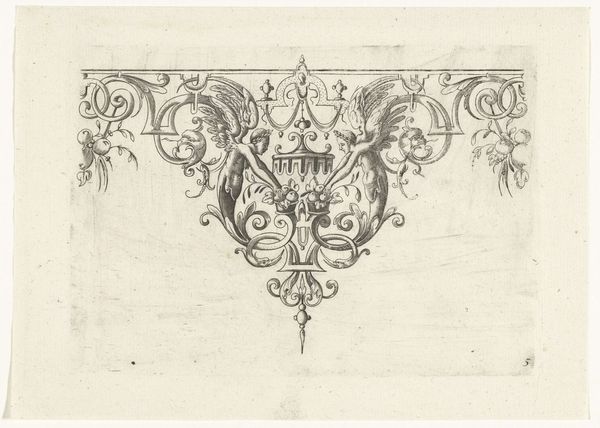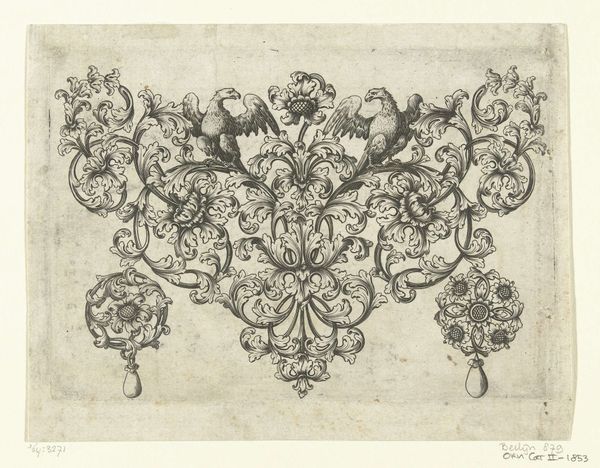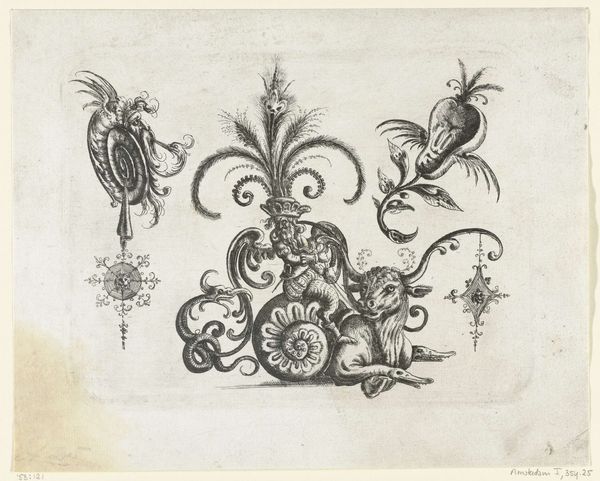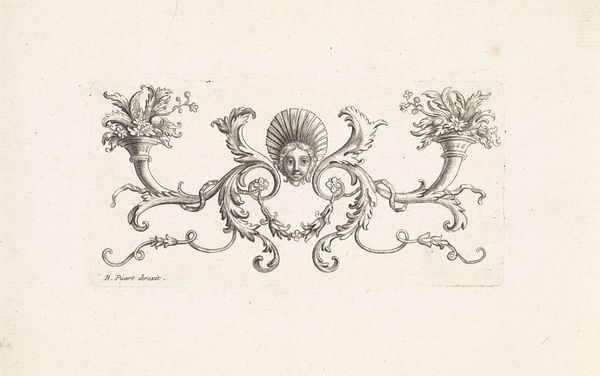
drawing, ink, engraving
#
drawing
#
mannerism
#
ink
#
geometric
#
engraving
Dimensions: height 139 mm, width 180 mm
Copyright: Rijks Museum: Open Domain
These two flat decorations with leaf tendrils and grotesques were created by Christoph Jamnitzer in the late 16th or early 17th century. During the Northern Renaissance, artists like Jamnitzer were instrumental in shaping visual culture, reflecting both the era’s opulence and its complex relationship with power and identity. The decorations are rich with symbolism, combining naturalistic leaf tendrils with fantastical, grotesque figures. These grotesque elements, often inspired by classical antiquity, were reinterpreted through a Northern European lens, reflecting a fascination with the exotic and the monstrous. On the left, we see figures resembling soldiers or courtiers, symbols of authority and status. On the right, elephant heads may reference global trade and colonial expansion, subtly alluding to the social hierarchies and cultural exchanges of the time. While these designs may seem purely ornamental, they are also deeply embedded in a world of social meaning. They remind us that even the most decorative of arts can tell us much about the lives and power structures of the people who made and enjoyed them.
Comments
No comments
Be the first to comment and join the conversation on the ultimate creative platform.
